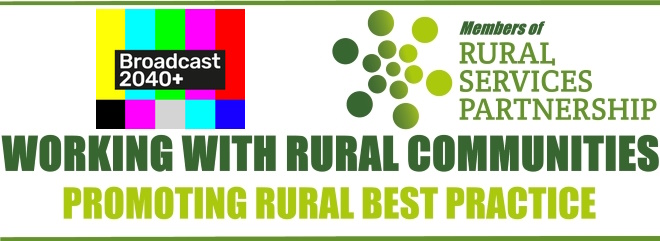T: 01822 851370 E: [email protected]
The Hidden Costs of Forcing a switchover to online-only TV: Rural Communities at Risk of Being Left Behind

In an era where the price of digital connectivity is too high, a new report by the consultancy group EY sheds light on the potential consequences of forcing a complete switch from terrestrial TV to internet-based broadcasting. The findings reveal a stark reality: millions of households, particularly the most vulnerable, could face significant financial burdens and reduced access to television services.
The report commissioned by Arqiva – a fellow member of the Broadcast 2040+ campaign – found that for the 4.3 million households in the UK who rely solely on broadcast TV, they could face an additional annual cost of £218 if there was a switchover to online only TV services. This is particularly concerning as the report finds that 31% of viewers cannot afford to pay more for their broadband and TV services.
The full impact of such a switchover is staggering. Initial costs could reach £2.1 billion for viewers and taxpayers, with ongoing annual expenses of £1 billion. Alarmingly, around £888 million of these recurring costs would likely fall on the shoulders of some of the most vulnerable members of society.
The existing hybrid TV service model, combining terrestrial TV with streaming options, has proven to be both effective and inclusive, raising questions about the necessity and benefits of a fully online TV system. Such a move would likely result in limited savings while simultaneously burdening viewers and taxpayers with increased costs.
Moreover, the reliability of internet connections compared to terrestrial TV services is a significant concern and many viewers would essentially be paying more for a less dependable service. Rural communities in particular face consistently poor connectivity with broadband and terrestrial TV is the lifeline that ensures that homes can maintain universal access to TV. The report highlights that 59% of viewers do not want to be forced to have a high-speed broadband internet connection to watch TV; and that 40% believe that a switchover to IP-only broadcasting would be a poor use of government funding. Beyond ongoing broadband costs, millions would face upfront expenses for new TV equipment and installation support, totalling approximately £129 million.
This report feeds into previous work done by EY which showed that even by 2040, over 5 million premises across the UK won’t have a high-speed fixed broadband connection – despite government plans to have 99% high-speed broadband coverage. Therefore, the importance of ensuring a reliable, secure and universally accessible service to access information, education and entertainment is even more critical.
As the current licenses for free-to-air, terrestrial broadcast TV are only secure until the early 2030s, Broadcast 2040+ is advocating for a longer-term commitment to these services and for an ongoing hybrid future for TV services. This would maintain the benefits of traditional broadcasting while still embracing the advantages of streaming, ensuring that television remains accessible and affordable for all members of society.
While technological advancement is inevitable, it's crucial to consider the communities who cannot connect, are unable to afford to, or do not have the infrastructure and technology to facilitate such changes. The potential switch to fully internet based TV broadcasting serves as a stark reminder that progress should not come at the cost of leaving those impacted by poor digital connectivity behind. As we move forward, a balanced approach that combines the best of both worlds – traditional terrestrial TV and modern streaming services – appears to be the most equitable and practical solution for all.



